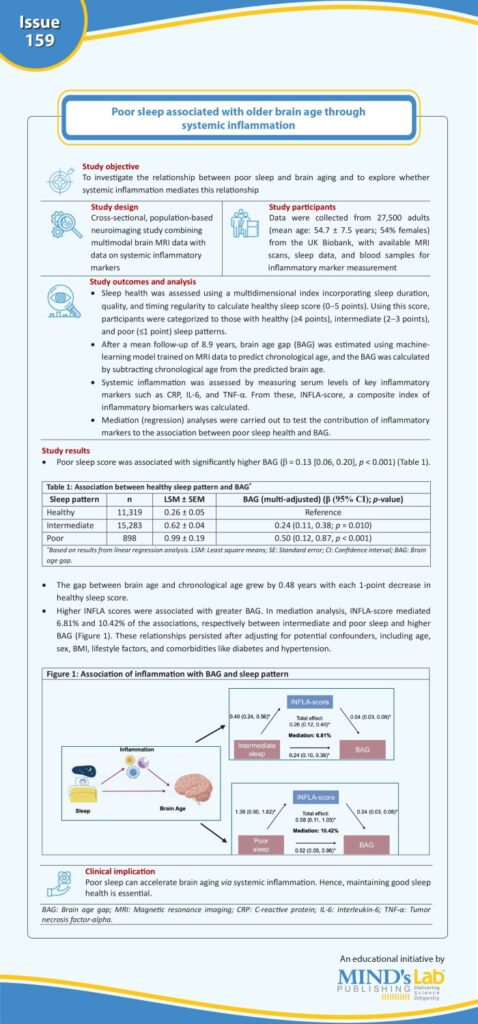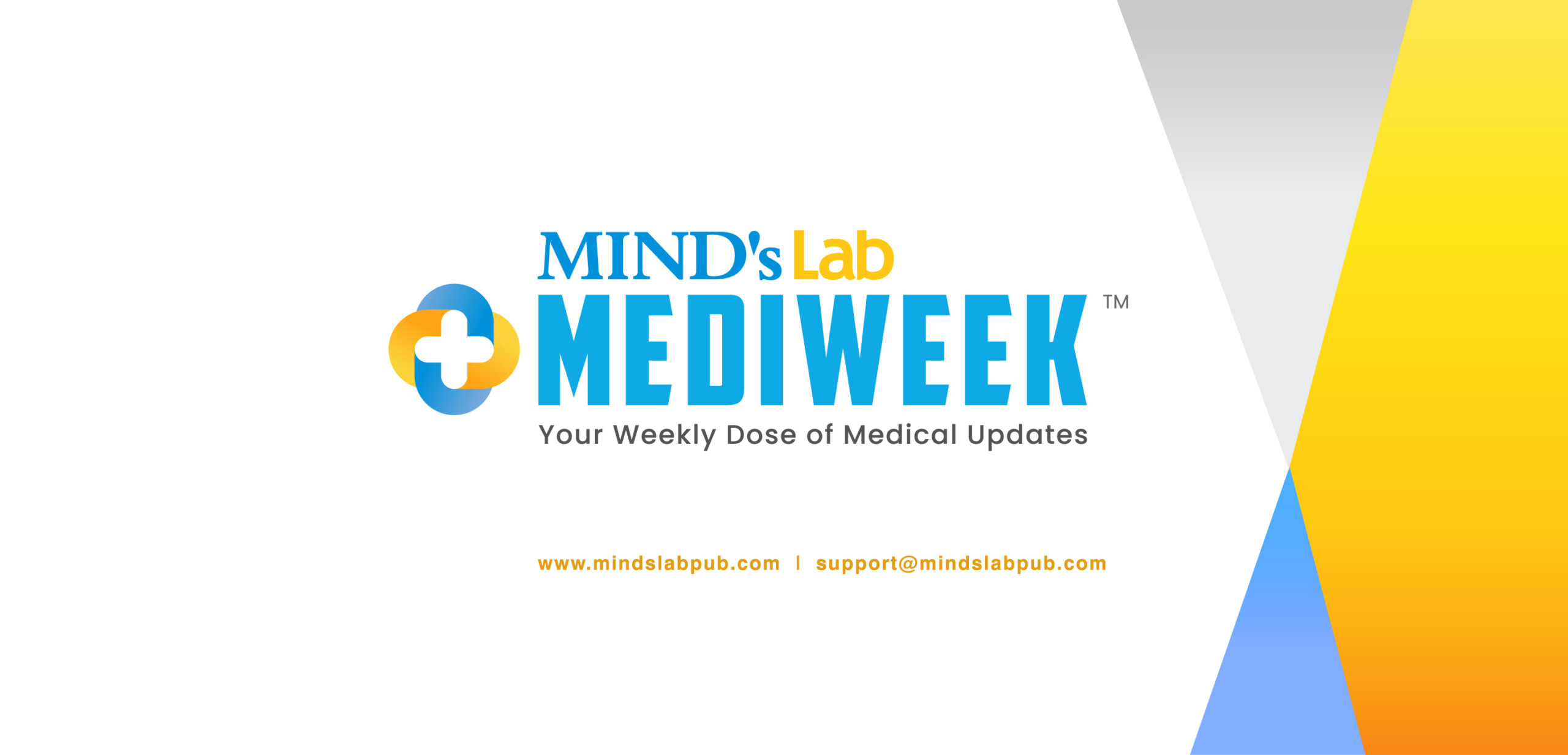
Sleep plays a vital role in the regulation of metabolism, modulation of immune function, brain waste clearance, and memory consolidation. Sleep disturbances are common in older age, and increasing evidence shows a complex relationship between sleep and dementia. The relationship between sleep and very early changes in brain health, before the symptoms of dementia set in, needs to be considered to better understand poor sleep health as a potential risk factor for dementia.
Many studies have linked unhealthy sleep with specific components of brain age. The link between prolonged sleep deprivation and disorders like sleep apnea to accelerated brain aging has been well documented in the literature. However, only one small study has yet addressed the relationship between overall sleep health and brain age. Moreover, further research is needed to understand the biological mechanisms connecting sleep disturbances to brain aging. Recent research has outlined the role of systemic inflammation as a critical mediator between sleep disturbances and neurobiological aging.
A recent study by Miao Y et al., published in the journal “EBioMedicine”, explored this connection by evaluating whether systemic inflammation mediates the relationship between poor sleep health and accelerated brain aging. Using advanced neuroimaging (structural and functional MRI data) analyses, it was noted that individuals with poor sleep exhibited a significantly higher “brain age,” suggesting older biological brain age compared to their chronological age. Based on the analyses of circulating inflammatory biomarkers, systemic inflammation was found to partly mediate this relationship. These findings highlight how chronic sleep disturbance can contribute to premature brain aging via inflammatory pathways, emphasizing the importance of healthy sleep for long-term cognitive as well as neurological health (see Graphic).

(Source: Miao Y, Wang J, Li X, Guo J, Ekblom MM, Sindi S, Zhang Q, Dove A. Poor sleep health is associated with older brain age: The role of systemic inflammation. EBioMedicine. 2025;120:105941. Doi:10.1016/j.ebiom.2025.105941)
